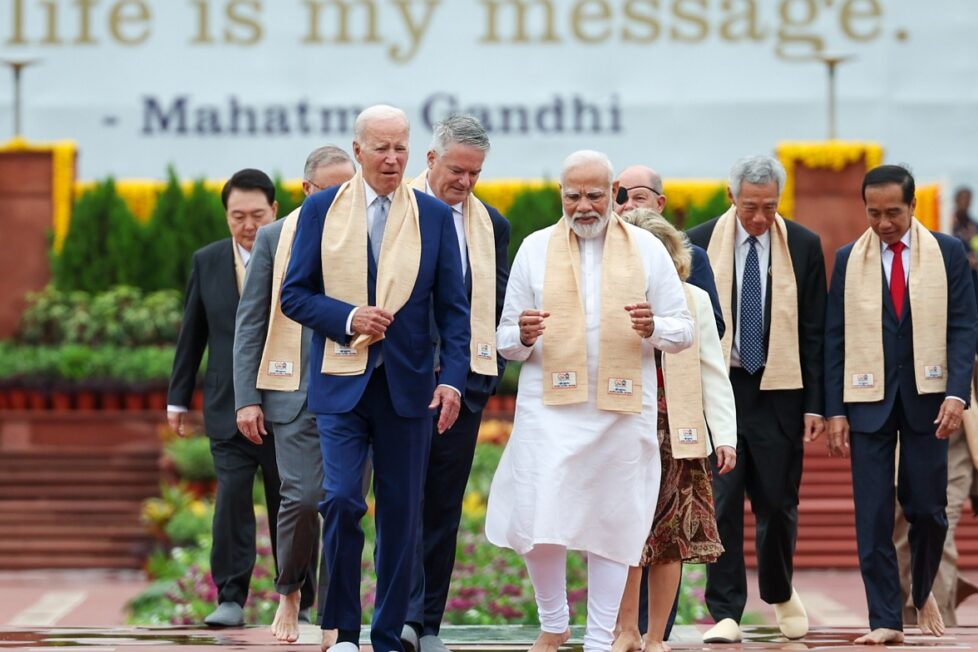G20 Targets Tripling of Global Renewable Energy Capacity by 2030

G20 leaders announced an agreement to target tripling renewable energy capacity by 2030, and to cooperate on the development of clean energy technologies at a two-day summit hosted over the weekend in New Delhi, although the meetings’ results fell short of developed markets’ participants ambitions to accelerate and strengthen global emissions reduction commitments.
The G20 members include Argentina, Australia, Brazil, Canada, China, France, Germany, India, Indonesia, Italy, Japan, Mexico, the Republic of Korea, Russia, Saudi Arabia, South Africa, Türkiye, the UK, the U.S. and the European Union. Russian President Vladimir Putin and Chinese President Xi Jinping did not attend the conference, sending Foreign Minister Sergei Lavrov and Premier Li Qiang, respectively, in their places.
The summit, convened under the theme “One Earth · One Family · One Future,” covered a wide range of topics, including Russia’s war in Ukraine and its impact on food and energy security, economic growth, progress on the Sustainable Development Goals, and climate and the environment, among other issues.
In a communique released Saturday, the G20 New Delhi Leaders’ Declaration, the leaders noted a significant lack of progress towards the UN Sustainable Development Goals (SDGs). The UN SDGs refer to the 17 categories of goals adopted as part of the 2030 Agenda for Sustainable Development, with the aim to protect the planet and improve the quality of life globally, with targets such as ending poverty and hunger, improving education, and protecting the environment.
The declaration said:
“At the midway point to 2030, the global progress on SDGs is off-track with only 12 percent of the targets on track.”
Among the key commitments listed in the declaration were pledges to “Accelerate the full and effective implementation of the 2030 Agenda for Sustainable Development,” “Pursue low-GHG/low-carbon emissions, climate-resilient and environmentally sustainable development pathways,” “Accelerate efforts and enhance resources towards achieving the Paris Agreement, including its temperature goal,” and to “Scale up financing from all sources for accelerating progress on SDGs.”
According to media reports prior to the meeting, G7 leaders were pushing for commitments to accelerate reaching net zero ahead of 2050 and set more ambitious interim emissions reduction targets, as well as adopting stronger language on reducing fossil fuel use and financing, while oil-producing countries, and those more heavily dependent on coal-based power, including Russia, China, Saudi Arabia and India, were opposed to some of the proposals.
While the declaration included pledges to “pursue and encourage efforts to triple renewable energy capacity globally,” and “accelerating efforts towards phasedown of unabated coal power, in line with national circumstances,” reductions in overall fossil fuels were not included, with the text mentioning only a prior commitment “to phase-out and rationalise, over the medium term, inefficient fossil fuel subsidies,” and reiterating the existing pledge to “achieve global net zero GHG emissions/carbon neutrality by or around mid-century.”
On the sidelines of the summit, leaders of India, the U.S., Singapore, Bangladesh, Italy, Brazil, Argentina, Mauritius and UAE announced the launch of the Global Biofuel Alliance (GBA), aimed at accelerating the global uptake of biofuels through the facilitation of technology advancements and the utilization of sustainable biofuels, and by supporting the development of standards and certification. Biofuels are expected to play a critical role in the transition to cleaner energy sources, particularly for sectors in which energy solutions such as wind or solar are less practical.